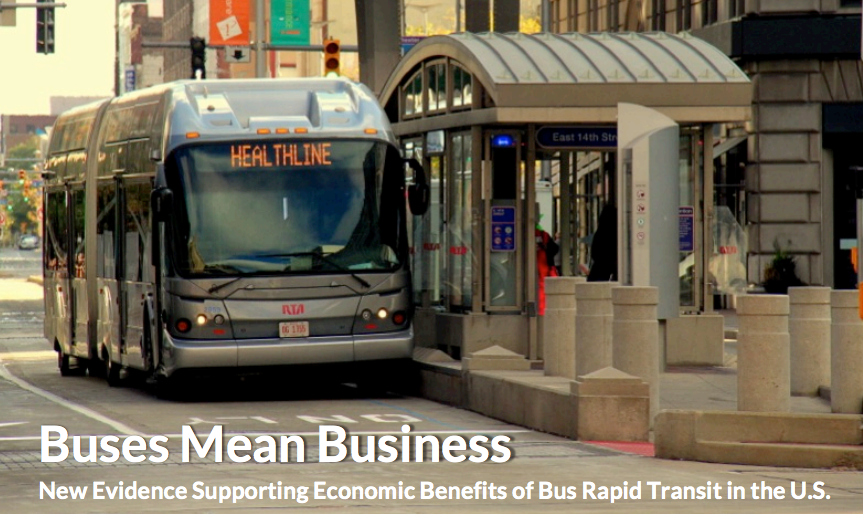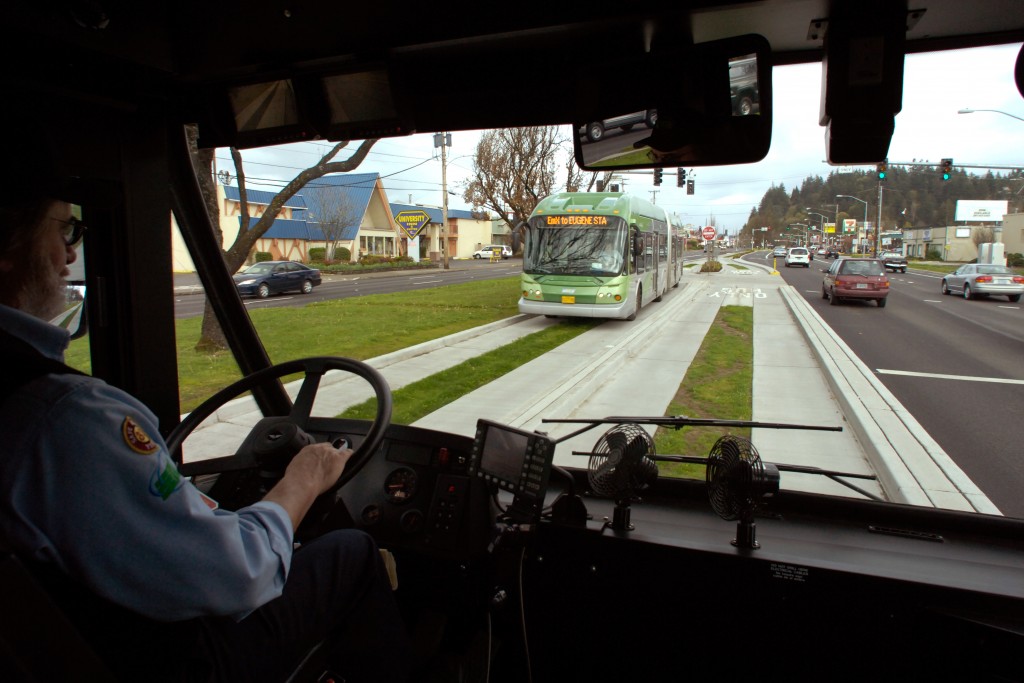
For those of you in the DC area next week (including those of you planning to attend the Transportation Research Board conference), join us on Tuesday for the national release of a new academic study on the economic benefits resulting from smart investments in bus rapid transit.
Join us next week on Tuesday, January 12th at 10:30 a.m. inside the Carnegie Library across from the DC convention center to hear from the report authors and other notable speakers.
Buses, you say? All across the US, interest in bus rapid transit (BRT) is booming as a smart, more affordable transit option. For the first time, a new peer-reviewed research study provides compelling evidence that BRT systems in the U.S. can generate economic development, attract jobs, retail and affordable housing — at a cost that’s well within reach for many mid-sized American cities. Join us as we help unveil the results of this new study outlining the potential economic returns of BRT investments, plus a firsthand explanation from the former Mayor of Indianapolis on why his city is banking on a brand new bus rapid transit network as one of the city’s primary economic competitiveness strategies.
Tuesday, January 12th, 2016
10:30 a.m. – 12 p.m.
The L’Enfant Map Room, Carnegie Library
801 K Street NW, Washington, DC
(Immediately south of DC convention center)
or contact Alicia Orosco: alicia.orosco@t4america.org
Join us on social media to talk about the findings, whether you’re attending in person next Tuesday or checking back here to read the full report on Tuesday. Is your city planning a new bus rapid transit line or system?
#BusesMeanBusiness
Hosted by:
- The Hon. John Robert Smith, Advisory Board Chair, Transportation for America & Senior Policy Advisor, Smart Growth America
- The Hon. Gregory Ballard, Former Mayor, Indianapolis, IN, and Advisory Board Member, Transportation for America
- (Study author) Arthur C. Nelson, Ph.D, FAICP, Professor of Planning & Real Estate Development, University of Arizona
- The Hon. Christopher Zimmerman, Vice President for Economic Development, Smart Growth America
Can’t make the meeting?
Help us spread the word about the event and the new study (which you’ll be able to read next week). Use the hashtag #BusesMeanBusiness and share the event on Twitter (link below), Facebook, and other social networks.
Sponsored by Transportation for America, Smart Growth America’s TOD Technical Assistance Initiative and the National Institute for Transportation and Communities.
SGA’s TOD Technical Assistance Initiative is made possible through support from the Federal Transit Administration.






